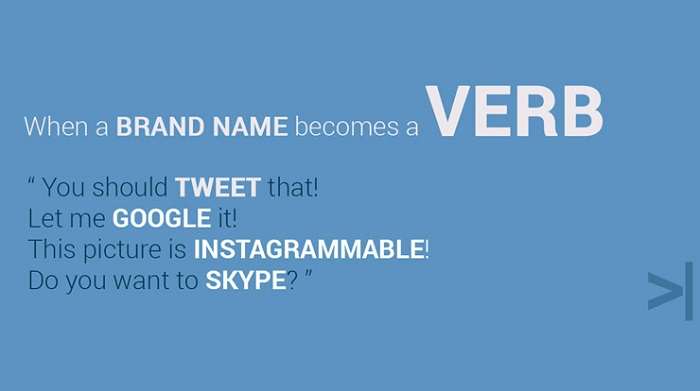In this article, we’ll explore the company whose name became a verb in the 2020s, what led to this transformation, and the broader implications of such a cultural milestone.
What Does It Mean for a Company’s Name to Become a Verb?
For a company’s name to become a verb is a hallmark of cultural relevance. It means that the service or product they offer is so integrated into everyday life that it transcends its brand identity. People don’t just use the product; they live the product. It’s an indication that the company has achieved a level of dominance and consumer reliance that makes it almost synonymous with the action it facilitates.
In linguistic terms, turning a noun (in this case, a company name) into a verb is called “verbification.” While this might seem like a modern phenomenon, it has historical roots in how societies adapt language to fit new technologies or social behaviors.
Now, let’s dive into a prominent example from the 2020s.
Zoom: The Verb That Defined Remote Communication
If there is one company that epitomizes the 2020s in terms of its name becoming a verb, it is Zoom. When the COVID-19 pandemic hit in early 2020, millions of people found themselves suddenly relying on Zoom’s video conferencing platform to maintain personal, educational, and professional communication. Overnight, Zoom became essential, and people began to “Zoom” each other.
How Zoom Became a Household Name
Founded in 2011 by Eric Yuan, Zoom initially served as a video communications tool primarily for businesses. It offered reliable, high-quality video meetings with an easy-to-use interface. However, it wasn’t until the global pandemic that Zoom truly skyrocketed in popularity.
With social distancing measures and lockdowns in place, the world needed a reliable platform for virtual meetings. Zoom’s user-friendly design, combined with its ability to accommodate large groups, made it the go-to solution for businesses, schools, and even families looking to connect with loved ones. As more and more people started using Zoom regularly, it quickly became ingrained in daily life.
People stopped saying, “Let’s have a video conference,” and started saying, “Let’s Zoom.” Whether it was a work meeting, a virtual happy hour, or an online class, Zoom became the verb of choice.
The Global Impact of “Zooming”
While Zoom’s rise to prominence was rooted in the needs of the pandemic, its transformation into a verb reflected its broader cultural impact. Zoom became synonymous with virtual connection in a time when face-to-face interactions were restricted. People weren’t just using Zoom—they were “Zooming” to attend meetings, reunite with family, and celebrate important milestones.
Zoom’s influence wasn’t limited to one country or region. It was a global phenomenon. From corporate boardrooms in New York to family gatherings in Mumbai, people everywhere were Zooming. The company’s name transcended linguistic and cultural barriers, establishing itself as the universal term for video calling.
Why Zoom?
So, what made Zoom the company whose name became a verb in the 2020s? A few key factors contributed to its rise:
1. Timing and Opportunity
The pandemic created a perfect storm for Zoom. With remote work and virtual communication suddenly becoming the norm, people were desperate for a reliable, easy-to-use video conferencing platform. Zoom was there at the right place, at the right time.
2. Simplicity and Accessibility
One of Zoom’s strongest selling points was its simplicity. It didn’t require users to download complex software or navigate a complicated interface. Whether you were tech-savvy or not, Zoom was easy to use, which helped it spread like wildfire. It also allowed people to join meetings without needing an account, making it accessible for all.
3. Freemium Model
Zoom offered a free version with basic functionalities, which was more than enough for most personal and small-scale professional use. This freemium model allowed people to start using the service without having to commit financially, further increasing its popularity.
4. Cultural Integration
Zoom wasn’t just a tool; it became a part of people’s lives. It was used for everything from professional meetings to weddings and birthday parties. This cultural integration contributed to its name becoming a verb. When people spent hours a day on Zoom, it became natural to use “Zoom” as a shorthand for the action of video conferencing.
The Psychology Behind a Name Becoming a Verb
While it’s fascinating to track which companies achieve “verb status,” it’s equally interesting to explore why this happens. Psychologically, verbifying a company’s name is often tied to convenience and efficiency. People are hardwired to simplify communication, and using a brand name as a verb is a quick way to convey an action.
In the case of Zoom, people used the platform so frequently and across so many contexts that saying “Let’s Zoom” was a more efficient and universally understood way of communicating the concept of video calling. The familiarity of the word made it stick.
Moreover, by turning a brand name into a verb, people feel a sense of ownership and personal connection with the product or service. In the case of Zoom, the platform became more than just a tool—it became a social lifeline during a time of global isolation. The emotional connection people felt with Zoom further cemented its verbification.
Other Companies on the Verge of Verb Status
Zoom isn’t the only company whose name has become—or is on the verge of becoming—a verb. Several other companies are similarly poised for verbification. Here are a few notable contenders:
1. Uber
Though it gained verb status in the 2010s, Uber continues to be a key example in the 2020s. People now say they are “Ubering” somewhere rather than calling a taxi. The brand’s ubiquity in ride-sharing solidified its place in everyday language.
2. Slack
As remote work became more common in the 2020s, Slack emerged as a major tool for team communication. People started saying, “Slack me that file” or “Let’s Slack about it,” demonstrating how a company’s name can become synonymous with a specific action.
3. Venmo
Venmo has become the go-to platform for peer-to-peer payments, especially among younger generations. Many now say, “I’ll Venmo you,” to indicate they’re sending money through the app. Venmo’s rise parallels Zoom’s, as both companies have made themselves indispensable in their respective areas.
The Long-Term Effects of Verbification on a Company’s Brand
Becoming a verb can be a double-edged sword for companies. On the one hand, it signifies that the company has achieved widespread brand recognition and cultural integration. On the other hand, it can lead to the brand name becoming so generic that it loses its distinct identity.
For example, “Google” became a verb to describe searching for information online. While this verbification solidified Google’s dominance in the search engine market, it also blurred the lines between the brand and the action. Now, people might “Google” something on competing search engines like Bing or DuckDuckGo. The same fate could befall Zoom as the verb “Zooming” may come to describe video conferencing in general, regardless of the platform being used.
What’s Next for Zoom?
As life begins to return to normal post-pandemic, some have wondered whether Zoom’s popularity—and by extension, the verb “Zoom”—will fade. However, the company has made efforts to expand its services beyond video conferencing. Features like virtual events, integrated chat functions, and remote collaboration tools suggest that Zoom is positioning itself to remain relevant long after its pandemic-fueled boom.
Zoom’s status as a verb is unlikely to disappear anytime soon. Even if its usage evolves, “Zooming” will likely remain a part of our vocabulary, much like “Googling” or “Ubering.”
Related Post:
Cast of the McBee Dynasty: Real American Cowboys
Mike Tyson vs. Jake Paul: Fight Rules Explained
Walmart Charging to Use Self-Checkout: What You Need to Know
The 2020s saw Zoom achieve a cultural milestone few companies can claim—its name became a verb. This transformation was fueled by necessity, accessibility, and the company’s ability to integrate itself into the fabric of daily life during a time of crisis. Zoom’s verbification is a testament to the brand’s influence and the role it played in keeping the world connected during a challenging time.




